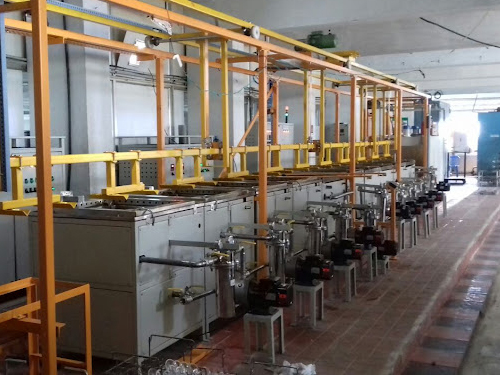
Glass Bottle Mould Cleaning
Introduction: In the glass manufacturing industry, the cleanliness and maintenance of glass bottle moulds play a crucial role in producing high-quality glass bottles. Glass bottle mould cleaning is a specialized process that removes accumulated residues, such as glass fragments, lubricants, and coatings, from the moulds. Effective mould cleaning ensures the production of flawless glass bottles while maintaining hygiene standards. In this article, we will explore the importance of glass bottle mould cleaning, the cleaning methods used, and the benefits it brings to the manufacturing process.
Importance of Glass Bottle Mould Cleaning: Clean glass bottle moulds are essential for several reasons:
- Product Quality: Clean moulds ensure the production of glass bottles with consistent shapes, sizes, and surface finishes. Removing residues from the moulds prevents defects such as streaks, spots, or blemishes on the glass bottles, ensuring a high-quality final product.
- 2.Hygiene and Safety: Glass bottles are often used for packaging food, beverages, and pharmaceutical products. Proper mould cleaning helps maintain a hygienic production environment, reducing the risk of contamination and ensuring the safety of the packaged contents.
- 3.Extended Mould Lifespan: Regular cleaning and maintenance of glass bottle moulds help prolong their lifespan. Removing residues prevents corrosion, wear, and damage to the mould surfaces, ensuring their longevity and reducing the need for frequent replacements.
Cleaning Methods: Several methods are used to clean glass bottle moulds, depending on the type and extent of contamination:
- Manual Cleaning: Manual cleaning involves physically scrubbing the mould surfaces using brushes, scrapers, or cleaning agents. This method is suitable for light contamination or when immediate cleaning is required between production runs.
- 2.Chemical Cleaning: Chemical cleaning employs specialized cleaning agents or solvents to dissolve and remove residues from the mould surfaces. The cleaning agents are selected based on the type of contamination and the material of the moulds. This method is effective for removing lubricants, coatings, and organic residues.
- 3.High-Pressure Water Jetting: Water jetting utilizes high-pressure water streams to dislodge and remove residues from the mould surfaces. The force of the water effectively removes particles and deposits without damaging the moulds. Water jetting is particularly useful for removing stubborn or hardened residues.
- 4.Ultrasonic Cleaning: Ultrasonic cleaning utilizes high-frequency sound waves to create microscopic bubbles in a cleaning solution. The bubbles implode upon contact with the mould surfaces, producing intense cleaning action. Ultrasonic cleaning is effective for removing fine particles, oils, and contaminants from intricate mould geometries and hard-to-reach areas.
Benefits of Glass Bottle Mould Cleaning: Proper cleaning of glass bottle moulds offers several benefits to the manufacturing process:
- Enhanced Productivity: Clean moulds ensure smooth and efficient glass bottle production. They minimize interruptions caused by defects or mould-related issues, reducing downtime and increasing productivity.
- 2.Consistent Production: Clean moulds contribute to consistent bottle shapes, sizes, and surface finishes. This ensures uniformity and minimizes rejects, enhancing the overall quality of the glass bottles.
- 3.Improved Efficiency: Regular mould cleaning prevents the build-up of residues that can hinder the release of glass bottles from the moulds. Effective cleaning allows for faster demolding, reducing cycle times and increasing production efficiency.
- 4.Cost Savings: Proper mould cleaning extends the lifespan of the moulds, reducing the need for frequent replacements. This leads to cost savings in terms of mould maintenance, repair, and replacement expenses.
- 5.Quality Assurance: Clean moulds contribute to the production of hygienic glass bottles, particularly important for food, beverage, and pharmaceutical packaging. It ensures compliance with industry regulations and customer requirements, enhancing brand reputation and customer satisfaction.
